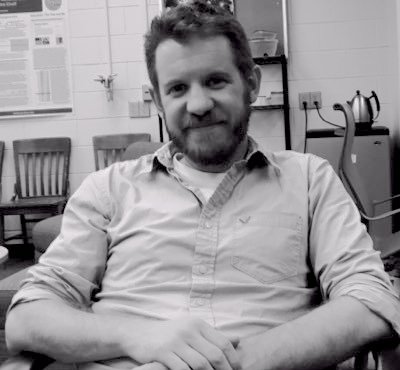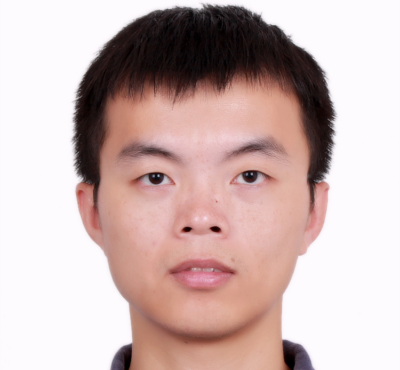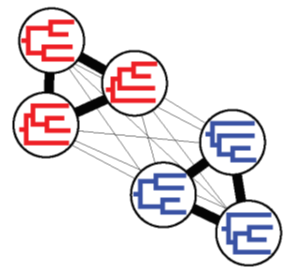The CloudForest Team
James Wilgenbusch

James (Jim) is responsible for the strategic direction and leadership of three major computational research areas: the Minnesota Supercomputing Institute (MSI), the University of Minnesota Informatics Institute (UMII), and U-Spatial. In this role he leads University-wide initiatives, partners with collegiate senior administrators and works with faculty and administrators to shape research computing at the University of Minnesota, ensures the excellence of existing activities, and facilitates the implementation of new programs. Jim is also involved at a regional and national level in the promotion and development of research cyberinfrastructure and plays a variety of roles in organizations such as the Coalition for Academic Scientific Computation (CASC), the Campus Research Computing Consortium (CARCC), and the National Science Foundation’s Big Data Regional Innovation Hubs. Jim maintains research activities in the study and implementation of models, methods and software used in phylogenetic inference and leads efforts to develop cyberinfrastructure for biological research and research and engineering in general.
Jeremy Brown

Jeremy is an Associate Professor at Louisiana State University. An empirical biologist at heart, he develops, tests, and applies statistical methods for inferring and using phylogenies, primarily using Bayesian methods. He has used these methods to address important biological questions including identification of the earliest diverging lineage of extant ants, the use of phylogenies as foresic tools in cases of HIV transmission, the phylogenetic placement of turtles, and the characterization of broad, genome-wide patterns of molecular evolution. Jeremy is a frequent contributor to the phylogenetic methods community and is actively involved in the development of RevBayes, an open source and flexible tool for Bayesian phylogenetic inference, in addition to his work on TreeScaper and CloudForest.
Kyle Gallivan

Kyle A. Gallivan is a professor in the Department of Mathematics at Florida State University. Prior to joining the mathematics department he was a professor in the Department of Computer Science and one of the founding group of faculty in the Computational Science and Engineering Program. Gallivan received his Ph.D. in Computer Science from the University of Illinois at Urbana-Champaign and was later a senior computer scientist in the Center for Supercomputing Research and Development and an Associate Professor in the Department of Electrical and Computer Engineering at that university. His interests are in algorithms, computing architectures and their interaction with a current emphasis on algorithms for optimization on manifolds and for large graph problems.
Reid Wagner

Reid is an application developer at the Minnesota Supercomputing Institute (MSI), part of the University of Minnesota. Here he works with researchers in various fields to develop and maintain applications that utilize supercomputing resources. He received his bachelor’s degree in Physics & Mathematics in 2014, and after working in a physics lab for one year, he entered the field of software engineering where he remains today. He has worked in multiple software domains including application & web development, system administration, and embedded engineering.
Benjamin Toups

Benjamin is a PhD Candidate in the Brown Lab at Louisiana State University. He started his professional journey as an IT assistant in the Biological Sciences department at LSU while earning his bachelor’s degree in Biology where he developed skills in computer systems and infrastructures. Upon completion of his degree, Benjamin combined his interests in biology, computing, and literature by joining the lab of Dr. Jeremy Brown where he studies evolutionary biology using computational methods. Currently, he is focused on studying how sequence evolution models of varying complexity might contribute to gene tree variation, as well as developing software tools to further explore gene tree variation..
Zhifeng Deng

Zhifeng Deng is a PhD candidate under the instruction of Prof. Kyle A. Gallivan. His work focuses on optimization on differentiable manifold with different structures. His role in TreeScaper project is to implement, maintain and document an efficient TreeScaper binary application developed from the original version, which is implemented by Wen Huang.
Wen Huang

Dr. Huang finished his Ph.D in Applied and Computational Mathematics in 2014 at Florida State University. He was a postdoctoral fellow from 2014 to 2016 in the department of mathematical engineering at Université catholique de Louvain. After that he joined the department of Computational and Applied Mathematics at Rice University as a Pfeiffer Postdoctoral Instructor. Dr. Huang’s current interests are optimization on Riemannian manifolds and its applications, including independent component analysis, low rank matrix/tensor completion, role model extraction problems, and the theoretical and algorithmic aspects of large data-driven problems. He developed a C++ toolbox, called ROPTLIB, for Riemannian optimization.
